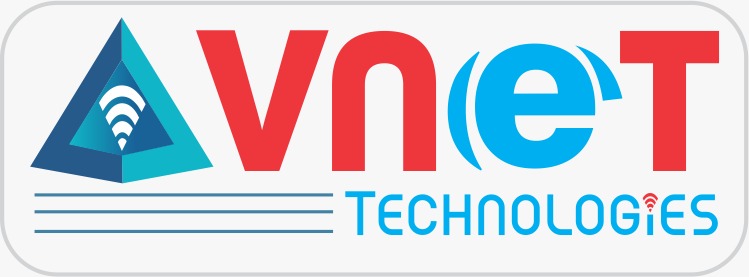
In the dynamic world of technology, AWS (Amazon Web Services) stands out as a pivotal platform for cloud computing. DevOps practices, combining development and operations to improve collaboration and efficiency, are crucial for leveraging AWS to its fullest potential. For high-performance teams looking to push the envelope, employing advanced AWS DevOps techniques can lead to remarkable improvements in productivity, scalability, and reliability. This blog explores some of these advanced techniques to help your team excel.
Infrastructure as Code (IaC) Beyond Basics
Infrastructure as Code (IaC)
Allows teams to manage and provision cloud resources through code. While basic IaC with AWS CloudFormation or Terraform is widely adopted, high-performance teams can enhance their practices with the following advanced strategies:
A. Modular Design and Reusability
Instead of creating monolithic templates, design modular and reusable components. This approach promotes consistency and reduces the time needed for updates and maintenance. Utilize AWS CloudFormation StackSets or Terraform modules to manage complex infrastructures more efficiently.
B. Custom Resource Providers
For complex scenarios where built-in resources are insufficient, consider creating custom resource providers. This allows you to extend CloudFormation or Terraform capabilities by developing custom logic and integrations.
Advanced CI/CD Pipelines
Continuous Integration and Continuous Deployment (CI/CD) pipelines are vital for delivering software rapidly and reliably. To take your CI/CD pipelines to the next level, consider these advanced techniques:
A. Pipeline as Code
Define your CI/CD pipelines using code to ensure consistency and version control. AWS CodePipeline and GitHub Actions support defining pipelines as code, making it easier to track changes and collaborate.
B. Blue/Green and Canary Deployments
Implement blue/green or canary deployments to minimize the impact of new releases. AWS CodeDeploy supports blue/green deployments, allowing you to test new versions with a small subset of users before a full rollout.
C. Automated Rollbacks
Incorporate automated rollback mechanisms in your pipelines. By integrating AWS CloudWatch alarms with AWS CodeDeploy, you can trigger rollbacks automatically if issues are detected during deployment.
Enhanced Monitoring and Logging
Effective monitoring and logging are crucial for maintaining high performance and quickly diagnosing issues. Leverage advanced AWS services to enhance these capabilities:
A. Centralized Logging with AWS CloudWatch Logs
Aggregate logs from multiple sources into AWS CloudWatch Logs. Use log streams and log groups to manage and analyze logs efficiently. Implement log retention policies to balance storage costs and data availability.
B. Custom Metrics and Dashboards
Create custom CloudWatch metrics to monitor specific application and infrastructure performance indicators. Build dashboards to visualize metrics and set up alarms to proactively manage issues.
C. Distributed Tracing with AWS X-Ray
Use AWS X-Ray for distributed tracing, allowing you to analyze and debug complex applications by tracking requests across various services. X-Ray helps identify performance bottlenecks and troubleshoot errors effectively.
Security Automation
Security is a critical aspect of DevOps, and automation can significantly enhance your security posture. Implement these advanced techniques for robust security management:
A. Automated Security Audits with AWS Config
Configure AWS Config to continuously monitor and assess your AWS resource configurations against predefined rules. Automate remediation actions to maintain compliance and enforce security best practices.
B. Secrets Management with AWS Secrets Manager
Use AWS Secrets Manager to store and manage sensitive information such as API keys and database credentials. Automate the rotation of secrets and integrate with your applications to reduce the risk of exposure.
C. Compliance Automation
Integrate AWS services like AWS Audit Manager to automate the collection of evidence for compliance audits. Set up automated reporting and track compliance status to ensure adherence to regulatory requirements.
Serverless Architectures and Microservices
Serverless computing and microservices are key trends in modern architecture. AWS provides powerful tools to support these paradigms:
A. AWS Lambda and Event-Driven Architectures
Leverage AWS Lambda for serverless computing, enabling you to run code in response to events without provisioning or managing servers. Design event-driven architectures using AWS SNS (Simple Notification Service) and AWS SQS (Simple Queue Service) to decouple services and improve scalability.
B. Microservices with AWS ECS and EKS
Deploy microservices using AWS Elastic Container Service (ECS) or Amazon Elastic Kubernetes Service (EKS). Implement service discovery, load balancing, and auto-scaling to manage containerized applications efficiently.
Cost Optimization Strategies
Efficient cost management is crucial for high-performance teams. Implement these advanced strategies to optimize AWS costs:
A. Cost Allocation Tags and AWS Budgets
Use cost allocation tags to categorize and track expenses across different projects and departments. Set up AWS Budgets to monitor spending and receive alerts when approaching budget thresholds.
B. Spot Instances and Savings Plans
Leverage EC2 Spot Instances for cost-effective computing power and consider AWS Savings Plans for predictable workloads. Analyze cost and usage reports to identify opportunities for further savings.
Conclusion
Mastering advanced AWS DevOps techniques can significantly enhance your team’s performance, scalability, and efficiency. By embracing practices such as modular IaC, sophisticated CI/CD pipelines, comprehensive monitoring, automated security, serverless architectures, and cost optimization, your team can drive innovation and achieve higher levels of productivity.
For those interested in deepening their expertise, **AWS training and certification** programs offer valuable resources to stay updated with the latest tools and practices. Regularly reviewing and refining your DevOps strategies to align with emerging trends and technologies is essential for ensuring your team remains at the forefront of cloud computing excellence.
In addition, leveraging **VNet technologies in Coimbatore, Saravanampatti** can further enhance your cloud infrastructure capabilities. By integrating advanced **AWS DevOps techniques** and utilizing **devops tools and technologies**, including local expertise like VNet Technologies, your team can achieve superior results and maintain a competitive edge in the fast-evolving cloud landscape.
